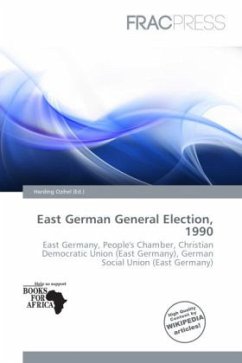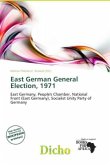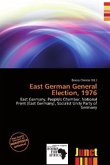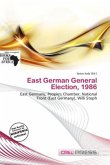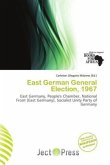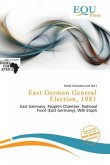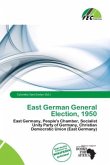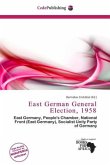Please note that the content of this book primarily consists of articles available from Wikipedia or other free sources online. Legislative elections were held in the German Democratic Republic on 18 March 1990. It was the first and as it turned out, only free parliamentary election in East Germany, and the first truly free election held in that part of Germany since 1933. A total of 400 deputies were elected to the Volkskammer, the plurality of them from the opposition pro-unification Alliance for Germany, led by the East German branch of the Christian Democratic Union. The former Socialist Unity Party of Germany participated under its new name, Party of Democratic Socialism and received the third largest number of seats. On 5 April 1990, the new Volkskammer elected the CDU member Sabine Bergmann-Pohl as its president; as the State Council was at the same time dissolved, she became East Germany's head of state. Lothar de Maizière (CDU) became prime minister, heading a grand coalition consisting of the CDU, the SDP, the FDP, the German Social Union (DSU) and one non-attached member.
Bitte wählen Sie Ihr Anliegen aus.
Rechnungen
Retourenschein anfordern
Bestellstatus
Storno

